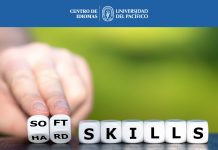Scripting lessons may be considered time-consuming by many, both experienced and novice teachers. In fact, a great deal of us consider lesson planning utopian and claim that the time spent drawing them up could be better spent preparing the activities and materials needed for the lessons. On the other hand, the authorities of schools and other institutions insist on its convenience in order to ensure that the aims and objectives of the lesson be achieved and that teachers do their job adequately. Which side is right?
Why would it be necessary to prepare lesson plans?
First, think of any occurrence that you wish with all your heart to take place. How would you go about to make it happen? Wouldn’t you need more than your desire to make it become a reality? You would very likely agree that you need to abide by at least a short list of steps in order to achieve your goal. However, to be able to maintain a balance between student-centeredness and content-centeredness, and to keep the lesson on track at the same time require, in most cases, more than a “short list” of activities. Preparing a lesson plan helps mentors design and conduct their sessions in an orderly fashion, increases teachers´ confidence, displays properly sequenced lessons and enables users to anticipate some problems and, consequently, be more ready to deal with contingencies. Furthermore, it offers clear evidence that teachers have taken the time and put a great deal of thought and effort into the design of the lesson. Thus, lesson plans turn up being not just an administrative requirement, they come to be crucial.
Who needs to prepare lesson plans? Old hands or rookies?
It is evident that some sort of strategy is needed, but individuals may argue about how much information the plan should contain or how specific it should be. Experienced educators may contend that only novices ought to prepare lesson plans because the veterans already know what to do in class, and how to respond in certain cases. Likewise, skillful professionals have repertoires of well-mastered routines for a number of situations which they can call upon without much distress. Although this could be true, not having a lesson plan may prove, in the long run, lack of efficiency and probably of effectiveness regarding the objectives of a course. Even worse, some teachers may rely too much on the students´ own effort and discipline to study by themselves. We should say that both categories, green and seasoned, necessitate to concoct some kind of magic potion for their lessons. However, the specificity of those plans may vary according to expertise.
What’s the difference between a veteran and an apprentice teacher? How does it affect planning?
One of the main characteristics of knowledgeable teachers is that they can readily recognize a number of well-known patterns in classroom events and hence make sense of them because of their hundreds and even thousands of hours of experience in the schoolroom. They have an ample baggage of routines, and know how to handle a variety of situations.
Expert teachers process simultaneously transmitted information very quickly, attend to multiple events at the same time, detect indicators of disruptive behavior and act on them appropriately and before they become problems. They are also able to anticipate the difficulties that students are likely to have and take precautions. They reach for a wide range of knowledge: of the pupils, the curriculum, classroom organization, student learning, as well as subject matter.
On the other hand, beginner teachers are in the process of acquiring all this know-how. They may have all the knowledge needed but may need to go through different situations before being able to recall them with ease. Consequently, they may need more guidance in the first few years of teaching, and it would help them be better organized and more confident in front of their students if they have a more detailed lesson plan.
What is most important when preparing a lesson plan?
At any rate, expert or beginners must have a clear vision about something extremely important: the aim and objectives needed to achieve their goals. Every single activity should revolve around them.
In the same way, they need to have a clear sample of the evidence needed to state that the objectives have been achieved. Otherwise, the lesson may be enjoyable, dynamic, and everybody may have fun but that will not necessarily mean that students will crown the objectives. We do not only need that students enjoy learning but that they do learn what they are expected to learn.
You may like to take a look at the following article which explains what to consider when preparing a lesson plan. It shows an easy and practical way of designing it.
Do you agree with the following statements? Share your views about them.
Without a lesson plan, classes will definitely be a disaster.
Both experienced and novice teachers must prepare lesson plans.
Lesson plans should be very specific even if you are an experienced teacher.
Estimated reading time: 4 minutes, 13 seconds











I think that is important to prepare a plan for any activity we do or want to do, as a way of organizing ideas, procedures and other elements of a class, moreover it helps have a clear idea how to start , develop and follow a lesson.For example in our school we have a planning which is adaptable and flexible that allows us to make changes easier and at the right moment, thanks.
I think that it´s important to be prepare for each class.The lesson plan helps us to have and organization and how to develop the lesson. I´m interested in how do we organize it in a practical way so I will continue with the reading, thaks for sharing it.
to prepare a lesson plan is really important because it can help us to guide and organise all the activities we prepare for a class.
I do agree with it. Because every single class starts with a lesson plan, in which we, as teachers, should consider our students´strenght, needs and aims. Therefore,we can also anticipate posible problems in our class. Another side od this document is that we can be well-organised with our strategies.
Planning is a vital tool of the teaching learning process. As you mentioned As teachers we have to set our goals for each single activity because it will keep teachers organized and confident, help students achieve objectives in addition will be able to handle whatever happens in class.
It´s essential to do a lesson plan because it allows to follow a sequence of activities, strategies and contents, etc. for each session and it´s useful to anticipate possible problems. Apart from this, It´s an evidence what we have achieved in our class and what we need to improve regarding that a lesson plan is adaptable and flexible. In my opinion both experienced and novice teachers have to do lesson plans because experienced could take into a routine and as you know teachers always have to up to date.
Thank you Raul for sharing your ideas. A plan should be a guide and the teacher should be the one who decides how to use it. It should be flexible and adaptable keeping in mind the objectives we want to achieve. Keep in contact!
Thank you María for keeping in contact. Being ready for each class is one of our responsibilities. Furthermore, it will enable us to take the best decisions. Keep in contact!
Thanks Danitza. Keep in touch!
Thanks Nataly. I totally agree with you. Besides, preparing a lesson plan increases our efficiency and efficacy. Keep in contact!
You are right Milagros. Thanks for sharing your views. Keep in touch!
It´s true that we may fall into a daily routine and a lesson plan can help us see what needs to be changed or improved. Thanks for sharing your ideas. Keep in touch!
Hello! Im really agree with the article but is important consider that sometimes the principals of the schools dont check the lesson planning of the class; In my opinion The lesson plannings are important tools for the language teaching.Thank you for the interesting articles that you publishing!
Comments are closed.